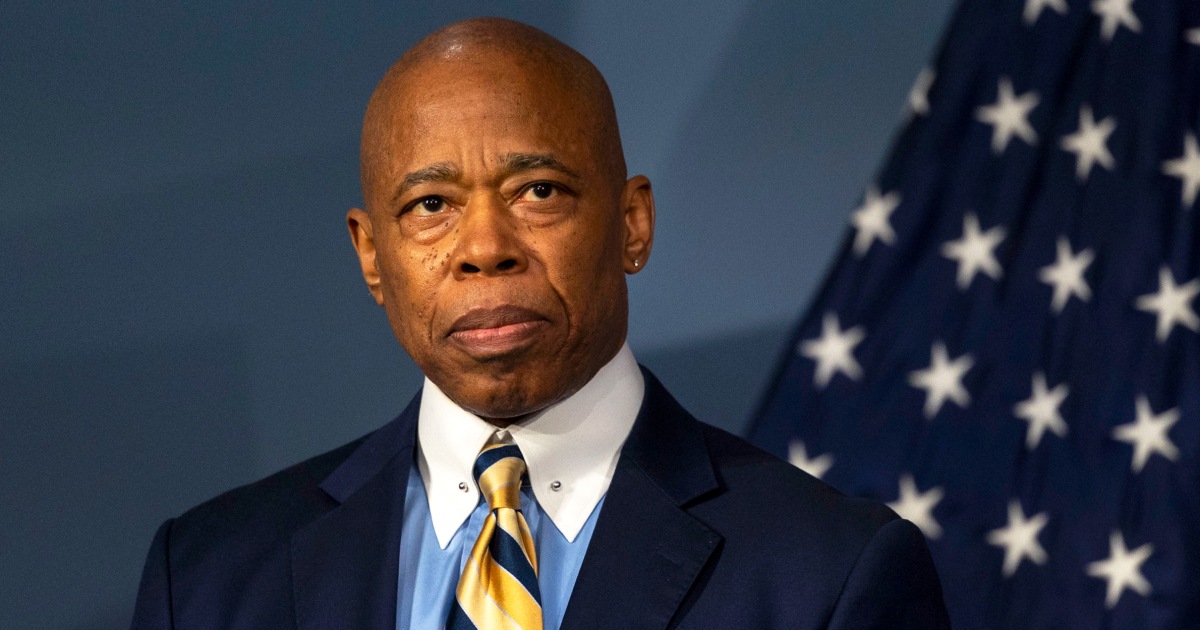Finance
The Soul-Sucking Danger Of Comparison In Personal Finance

How in the world could you ever justify spending $500 or more on a pair of sneakers? That’s how I interpreted the question posed by the Wall Street fugitive, Khe Hy, when I saw this tweet:
They cost how much??
Khe Hy / Twitter
Knowing Khe’s penchant for nuance, his question likely wasn’t as direct as my initial translation, but that’s how it hit me, and I was curious to see how others would respond. But first, let’s answer the question.
The shoe depicted is one half of a pair of Golden Goose sneakers, an Italian designer brand known for its beat-up appearance and outlandish price tag. The first time I saw them, I thought, “Oh, cool, a new line of [Converse] Chuck Taylors…” until I saw the price tag and responded, “What!?”
But back to the story. As I perused the responses to the tweet, I noticed that they were universally bashing the brand, while many were also judging the very character of those who’d choose to wear the shoes. It was almost as if there was a medicinal quality to the collective judgment of those who’d be wasteful, superficial, or attention-seeking enough to adorn their feet with a pair of Golden Goose tennis shoes.
I understand the sentiment. Especially as a financial advisor, I tend to look at material things and see a price tag rather than the item itself, and I’m prone to judging the purchaser. I know I’ve been driving through a neighborhood that was more expensive than mine, hearing one of my kids remark at how amazing a house was, and instead of responding, “Yes, it’s beautiful,” I remarked, “They probably have a ton of debt.” [Insert Debbie Downer noise.]
I know we’ve been wowed by an incredible sports car, only to punctuate our fascination with the wet-blanket commentary, “Yeah, but they probably have a huge car payment.”
So, I get the sentiment expressed toward the outrageously-priced, beat-up shoes. But.
I also have a pair.
You see, the first time I remember seeing a pair of Golden Goose shoes, I was with my now wife. We were in that blissful phase of dating where everything felt pretty dreamy, yet things were getting serious enough that we were starting to make not-so-veiled allusions to a more permanent future together.
After we both had the eye-popping experience of looking at the price tag on the shoes, I wondered aloud what type of occasion it might take to justify such a purchase, hinting at the possibility of a “big day” in our future.
Sure enough, after we got engaged and set a date, we built our wedding attire from the feet up, both wearing a pair of distressed Golden Goose high tops at the altar. To this day, they are still my most prized article of clothing. I wear them constantly, ever reminded of the meaningful moment I first saw them, and the trip we made after our engagement when we went back to the store to buy them.
They are worth so much more than I paid.
Wedding Shoes
Tim Maurer / Twitter
An amazing quote that is most often attributed to Teddy Roosevelt, suggests that “Comparison is the thief of joy.”
And oh, how true this is. Most of what you’ll read on the soul-sucking danger of comparison refers to not feeling diminished by comparing what you don’t have that someone else might—but we also suffer unnecessarily when we condescend to or judge those who’ve chosen to purchase something that we haven’t.
Writing for the Albert Ellis Institute, Magda Murawska explains, “The danger of comparing ourselves to others is that our comparisons are never fair. Each one of us is a unique individual with characteristics and life events that are unique to only us.”
Comparisons are never fair because we each have our own stories, a confluence of events and emotions. And the seed of bitterness that plants itself within us every time we judge only harms us. So, the next time we are tempted to judge someone, whether for something they have or something they don’t, let’s consider the possibility that there might just be a great story behind that purchase or abstinence.
And we’re probably better off staying focused on our own story anyway.
(Special thanks to Khe Hy for the inspiration and for his blessing to use his tweet as the foundation for this post.)

Finance
UK Finance Minister to Call for Defence Spending Cooperation at EU Meeting
Finance
Blockchain: The Operating System For Global Finance

Block chain network technology
getty
Blockchain infrastructure ↔ Traditional finance
Digital assets ↔ Real-world usage
Startups and protocols ↔ Institutional systems
In November 2024, while crypto headlines fixated on volatility, the European Investment Bank (EIB) issued a €100 million digital bond on HSBC’s Orion platform—settling the same day using wholesale central bank digital currency (wCBDC) tokens issued by the Banque de France. Days later, Goldman Sachs announced plans to spin out its GS DAP® blockchain platform into an industry-owned utility. Neither event made headlines, yet both signal a profound shift in global finance. These aren’t innovation lab pilots—they’re strategic moves by financial titans rebuilding the core infrastructure powering traditional finance. Blockchain isn’t disrupting Wall Street; it’s becoming its operating system. While headlines obsess over Bitcoin, the real shift is happening quietly. Institutions are laying tracks beneath the surface—moving trillions, settling trades, and weaving decentralization into the foundations of financial infrastructure.
This is about the mechanics of how money moves—legacy systems controlled by intermediaries, burdened by high costs and delays, or blockchain rails enabling direct, peer-to-peer, atomic settlement. By embedding itself into the plumbing of global finance, blockchain is rewiring the system from within—driving the most significant transformation since electronic trading replaced floor brokers. Just as cloud computing became the invisible backbone of digital ecosystems, blockchain is rapidly becoming the core of global finance.
That transformation is already shaping tomorrow’s winners and losers. Whether you’re investing, leading a company, or building financial products, understanding the ecosystem is essential to smart decision-making. It comes down to grasping how these once-separate worlds are converging—and recognizing the key players making it all work. This isn’t theoretical. It’s actively reshaping competitive dynamics, creating new opportunities, and rendering old models obsolete.
The Institutional Shift: From Resistance to Adoption
Once dismissed as speculative, blockchain is now a strategic priority for institutions like JPMorgan, BlackRock, and Goldman Sachs. Blockchain is quietly reengineering a financial system that supports more than $100 trillion in global capital markets and moves trillions daily. The shift has been deliberate and strategic—years in the making, but now rapidly gaining traction. What was once seen as a fringe experiment is now deeply embedded in traditional financial infrastructure. Institutions are embracing blockchain not for speculation but for cost savings through improved efficiency—streamlining operations, eliminating intermediaries through peer-to-peer (P2P) transactions, and enabling atomic settlement. JPMorgan moves trillions via JPM Coin. BlackRock issues Bitcoin ETFs and integrates blockchain into its $10 trillion portfolio infrastructure. Goldman Sachs, once cautious, is now leaning in—expanding its digital assets desk and signaling that blockchain isn’t a side bet; it’s part of the long game. And rather than being sidelined, Visa and Mastercard are weaving blockchain into their payment systems—Visa alone processed billions of dollars in crypto transactions in 2024. This isn’t capitulation—it’s evolution. These giants are using blockchain to streamline systems, improve liquidity, and boost transparency.
Still, some of the most transformative innovations are coming from agile startups—solving inefficiencies in payments, trading, and consumer incentives. The companies mentioned illustrate broader trends, not endorsements or prescribed winners. They offer a glimpse into a larger shift—one driven by thousands of startups, protocols, and infrastructure providers reshaping the foundation of global finance.
The Modular Architecture of the New Financial Stack
Unlike traditional finance’s siloed systems, blockchain is built for composability—where financial applications plug into one another like Lego bricks, driving rapid innovation and more connected services. This modular architecture enables developers to stack functions—trading, lending, staking, identity, settlement—into seamless user experiences. It’s most visible in DeFi, where protocols like Aave, Uniswap, and Lido integrate natively, accelerating innovation without the friction of closed systems. But composability extends beyond DeFi. As tokenized assets, on-chain identity, and payment networks evolve, the same plug-and-play architecture is beginning to reshape how institutions build and deploy financial products and infrastructure.
Composability doesn’t just speed up product cycles—it unlocks entirely new value chains. A lending app can tap into yield protocols or tokenized collateral instantly—without the bottlenecks of backend integrations or clearinghouse approvals. In this emerging financial stack, the winners aren’t just fast—they’re interoperable.
Concept of mobile payments. Wallet connected with mobile phone.
getty
Crypto’s Payment Bridge
The structural limitations of crypto as a medium of real-world payment have long hindered its adoption. Digital assets remained siloed in wallets and exchanges, cut off from everyday financial systems. But that barrier is starting to break down—not by replacing payment giants, but by building infrastructure that bridges the two worlds. In fact, payment giants like Mastercard and Visa have accelerator programs focused on integrating targeted crypto solutions that can plug into existing systems, creating corridors between traditional and decentralized financial systems.
Hong Kong-based Aurum exemplifies this approach, enabling users to fund accounts with USDT and spend in local currencies. Its ecosystem offers bots, payment cards, staking, NFT licenses, and a Web3 wallet with low fees and cashback rewards. With $12M in funding, Aurum delivers institutional-grade trading and payment infrastructure powered by advanced AI, complementing traditional financial networks. Former Binance executive Bryan Benson now leads Aurum Exchange, bringing expertise in scaling crypto platforms across emerging markets.
The endgame? A world where crypto wallets function seamlessly with traditional payment systems, making digital assets as spendable as cash—without friction.
Trading’s Transparency Upgrade
For decades, financial markets have been plagued by opacity, insider advantages, and inefficiencies. The blockchain era is changing that dynamic. Institutions like State Street ($43T AUM) and BNY Mellon ($46.7T in assets under custody), with their extensive trading operations and market influence, are already implementing blockchain-based trade settlement solutions, ensuring real-time transaction verification and eliminating counterparty risks.
In the retail trading landscape, Spotware’s cTrader stands as a notable example of transparency while delivering sophisticated trading infrastructure. Built on its Traders First™ principles, cTrader aims to establish high standards for fairness, transparency, and security—tackling long-standing industry challenges and helping to level the playing field for all participants. The platform’s technology handles millions of transactions daily, connecting over 8 million traders and more than 250 brokers and prop firms to global markets.
Specialized infrastructure providers power this shift—the hidden backbone behind evolving trading systems. These providers don’t serve end users directly—they power those who do, underpinning the next generation of financial infrastructure. Fireblocks secures over $4 trillion in digital assets for institutions, ensuring transparent custody and seamless settlement. Chainlink delivers tamper-proof price data to more than 1,900 projects, forming the foundation of reliable price discovery. Circle’s USDC moves across exchanges, wallets, and payment systems, enabling instant, transparent fund transfers. Together, these firms are becoming the “essential middleware” layer of global finance—quietly powering billions in daily activity.
Beyond efficiency, blockchain is redefining who gets to participate in wealth creation.
Democratized Investment: Blockchain’s Bridge to Real-World Assets
Blockchain’s most powerful shift may be this: turning real-world value into liquid, on-chain capital—making static assets move, trade, and work for more people than ever before.
Tokenization is fast becoming the gateway to unlocking trillions in dormant capital. By converting assets like treasury bills, real estate, and private credit into blockchain-based tokens, platforms are transforming illiquid markets into accessible, tradable units. The impact? Fractional ownership, 24/7 settlement, and borderless access.
Major asset managers such as Franklin Templeton, BlackRock, Goldman Sachs, and HSBC are leading this transformation by developing tokenized investment products. Their participation lends institutional credibility to this emerging market, much like ETFs did for equities decades ago. Similarly, financial institutions like JPMorgan and State Street are laying the groundwork to bring traditional assets on-chain, recognizing tokenization’s far-reaching benefits.
Tokenized assets are projected to reach $2 trillion by 2030, led by cash deposits, bonds, mutual funds, and loans. Their appeal? Mobility, real-time settlement, programmability, and transparency—infused into markets once defined by slow processes, siloed systems, and rigid structures.
8lends by Maclear exemplifies this trend, offering USDC-backed loans to vetted businesses, making passive investing more accessible. Their platform combines blockchain transparency with the familiarity of traditional finance, eliminating cumbersome procedures and accreditation requirements. Smart contracts automate the entire process, delivering predictable returns with complete on-chain visibility.
This represents a foundational shift in financial infrastructure. Tokenization is not only expanding access to investment opportunities—it’s reducing friction, unlocking liquidity, and streamlining capital flows across the global economy.
The New Financial Operating System
The future of finance won’t be defined by crypto replacing banks or banks neutralizing crypto. It will emerge at their intersection—where the trust, scale, and regulatory expertise of traditional institutions fuse with the transparency, efficiency, and programmability of blockchain technology. The boundary between these worlds isn’t just blurring—it’s beginning to vanish.
Like the internet before it, blockchain is gradually disappearing into the background—becoming the invisible rails on which global finance runs. The future of money is being written in code. The biggest winners won’t be those who merely accumulate tokens—but those who understand blockchain as foundational infrastructure. As blockchain dissolves into the conduits of global finance, it’s becoming the architecture through which value will move, scale, and settle in the decade ahead.
Finance
2025 End of Session Wrap-Up: Finance
The segments below provide a brief overview of MACo’s work on finance policy in the 2025 General Assembly.
Maryland’s 447th legislative session convened amidst a substantial concern over the State’s fiscal situation, with weakened revenues and cost increases for many services at every level of government. Despite the budgetary limitations, many policy issues received a full debate, with many resolutions arising from the 90-day annual process. MACo’s Legislative Committee guided the association’s positions on hundreds of bills, yielding many productive compromises and gains spanning counties’ uniquely broad portfolio.
Follow these links for more coverage on our Conduit Street blog and Legislative Database.
![]() MACo supported HB 498/SB 427 – Economic Development – Delivering Economic Competitiveness and Advancing Development Efforts (DECADE) Act with amendments. This bill proposed a comprehensive restructuring of Maryland’s economic development programs to centralize funding and policy decisions and shift priorities toward targeted industries. Counties requested amendments to preserve local flexibility, protect proven incentive programs, maintain meaningful input in funding decisions, and ensure workforce development strategies align with local and regional priorities. This bill did not pass in the 2025 session.
MACo supported HB 498/SB 427 – Economic Development – Delivering Economic Competitiveness and Advancing Development Efforts (DECADE) Act with amendments. This bill proposed a comprehensive restructuring of Maryland’s economic development programs to centralize funding and policy decisions and shift priorities toward targeted industries. Counties requested amendments to preserve local flexibility, protect proven incentive programs, maintain meaningful input in funding decisions, and ensure workforce development strategies align with local and regional priorities. This bill did not pass in the 2025 session.
Bill Information | MACo Coverage
![]() MACo supported HB 17/SB 340 – Internet Gaming – Authorization and Implementation with amendments. This bill would have authorized the State Lottery and Gaming Control Commission (SLGCC) to license video lottery operators to conduct and operate internet gaming in Maryland. Counties requested amendments to include measures that protect existing revenue streams and maintain the effectiveness of local impact grants. This bill did not pass in the 2025 session.
MACo supported HB 17/SB 340 – Internet Gaming – Authorization and Implementation with amendments. This bill would have authorized the State Lottery and Gaming Control Commission (SLGCC) to license video lottery operators to conduct and operate internet gaming in Maryland. Counties requested amendments to include measures that protect existing revenue streams and maintain the effectiveness of local impact grants. This bill did not pass in the 2025 session.
Bill Information | MACo Coverage
![]() MACo supported HB 637 – Transportation – Highway User Revenues Capital Grants – Calculation. This bill would have fully restored Highway User Revenues (HUR) to local governments and finally corrected a long-standing imbalance in Maryland’s transportation funding. This bill did not pass in the 2025 session.
MACo supported HB 637 – Transportation – Highway User Revenues Capital Grants – Calculation. This bill would have fully restored Highway User Revenues (HUR) to local governments and finally corrected a long-standing imbalance in Maryland’s transportation funding. This bill did not pass in the 2025 session.
Bill Information | MACo Coverage
![]() MACo submitted a letter of information on SB 935 – Transportation – Regional Authorities – Established. This bill proposed Regional Transportation Authorities and new transportation-related surcharges to support transportation infrastructure. MACo submitted a letter of information urging the Committee to weigh key policy considerations. This bill did not pass in the 2025 session.
MACo submitted a letter of information on SB 935 – Transportation – Regional Authorities – Established. This bill proposed Regional Transportation Authorities and new transportation-related surcharges to support transportation infrastructure. MACo submitted a letter of information urging the Committee to weigh key policy considerations. This bill did not pass in the 2025 session.
Bill Information | MACo Coverage
![]() MACo submitted a letter of information on HB 1370/SB 881 – Transportation – Regional Transportation Authorities. This bill proposed Regional Transportation Authorities and new transportation-related surcharges. This bill did not pass in the 2025 session.
MACo submitted a letter of information on HB 1370/SB 881 – Transportation – Regional Transportation Authorities. This bill proposed Regional Transportation Authorities and new transportation-related surcharges. This bill did not pass in the 2025 session.
Bill Information | MACo Coverage
![]() MACo supported HB 846 – Transportation Access and Revenue Act with amendments to address the state’s chronic transportation funding shortfall and enable counties to invest in safe, equitable, and sustainable transportation projects that reduce congestion, enhance communities, and strengthen the economy. This bill did not pass in the 2025 session.
MACo supported HB 846 – Transportation Access and Revenue Act with amendments to address the state’s chronic transportation funding shortfall and enable counties to invest in safe, equitable, and sustainable transportation projects that reduce congestion, enhance communities, and strengthen the economy. This bill did not pass in the 2025 session.
Bill Information | MACo Coverage
For more finance-related legislation tracked by MACo during the 2025 legislative session.
-

 News1 week ago
News1 week agoSupreme Court Rules Against Makers of Flavored Vapes Popular With Teens
-

 News1 week ago
News1 week agoNYC Mayor Eric Adams' corruption case is dismissed
-

 Technology1 week ago
Technology1 week agoHere’s how you can preorder the Nintendo Switch 2 (or try to)
-

 News1 week ago
News1 week agoTrump’s ‘Liberation Day’ Tariffs Are Coming, but at a Cost to U.S. Alliances
-

 News1 week ago
News1 week agoTrump to Pick Ohio Solicitor General, T. Elliot Gaiser, for Justice Dept. Legal Post
-

 Business1 week ago
Business1 week agoMarkets Remain Uneasy as Trump Prepares Sweeping ‘Reciprocal’ Tariffs
-

 Politics1 week ago
Politics1 week agoFBI flooded with record number of new agent applications in Kash Patel's first month leading bureau
-

 World1 week ago
World1 week ago‘A historic moment’: Donald Trump unveils sweeping ‘reciprocal’ tariffs



















